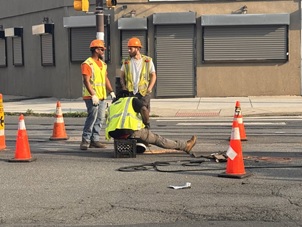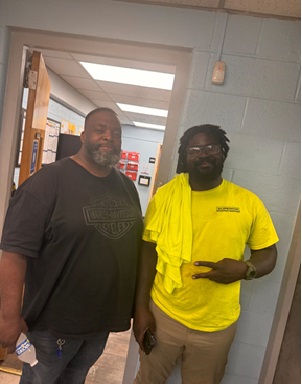In Philly, career colleges are more than educational institutions for getting a certificate/degree. They could serve as a lifeline for at-risk youth because they involve skills training and personal coaching. These schools provide students with a fighting chance at creating a trade they can be proud of by providing them with targeted trade programs, preparation for skilled trade occupations and experiences in hands-on learning of trade. So how does this mentorship work and why does it make a difference?
Career colleges approach the issue of assistance to at-risk youth so that they address this population not simply in terms of training, but as a whole person.
51% of the at-risk youth with mentors assume leadership roles (clubs, sports, school council) compared to 22% who are not mentored.
Here is what that support would entail.
At the basic level, students are taught how to perform a particular job and mentored on soft skills such as communication, time management, and problem-solving, which are very important in the long term.
Most colleges have connections with nonprofits, shelters, and youth programs to build a community of support that survives outside the classroom and into the field.

Career colleges develop networks and partnerships with local employers, putting students in direct contact with employers that provide programs related to the student and their training.
The helping hand does not end with a diploma. Mentors tend to keep in touch, providing advice and support as graduates start their careers.
40% of youth mature without ever seeing a mentor, and 67% say they have experienced a time when they needed a mentor.
Success Story, Marcus, 20
Marcus was raised in North Philly and was insecure about housing. He joined one of the local career colleges to study welding under the direction of his mentor, who referred him to a local fabrication shop. Not only did he finish his training, but he did it in a year; he became a team lead, something he never thought possible.

getting a skilled trade job placement in Philly.
Trade programs are intended to instil skills to perform a job and a purpose. When aligned with good mentorship, they can utterly change the course of a person’s life.
Big Brothers Big Sisters mentees make about 15% more after age 20 through 25 and have a 20% greater chance of going to college.
Upon completing the StudUpon application, students are sent off with real-world skills that can be immediately used in the job market, making the transition between the classroom and the job market easier.
It can be carpentry, welding, or electrical. The presence of a mentor who has done what you do makes the learning process relatable and inspiring.
Their acquired skills have been certified and have gained them access to better-paying jobs, proving the power of integrating mentorship with training.
Local industries find it advantageous to recruit students with the technical knowledge to be successful and the professional maturity needed.
Success Story 19, Alisha
Alisha left high school at 17 but reentered the electrician program through a Philly career college. With the help of her mentor, she obtained her vocational certifications and became an apprentice at one of the major construction companies. She is already saving money to rent her own apartment and act as a mentor to new students.
Remaining involved in school is one of the most significant issues at-risk children face. Mentorship is also central to the learning trades programs, ensuring the students are encouraged and focused.
A reliable guide is what one needs to persevere or quit, which will encourage one to overcome difficulties.

Check-ins, goal setting and feedback encourage students to maintain organisation and be dedicated in their career college process.
People will be less likely to take off before their course or work term is finished when they know they are being cared about.
Graduation rates have exceeded 20 per cent in several Philly programs incorporating pre-structured mentorship for trade program students.
The opportunities that the career colleges in Philadelphia offer demonstrate that not only are textbooks and classrooms concerned with education, but they are also about creating futures. They are developing at-risk youth by offering them skills in learning trades, the confidence they can achieve in offering trade programs under a well-guided tutelage, and helping them earn vocational certifications. These graduates are not merely getting skilled trade jobs but breaking the cycle, making goals and writing their own books.
Read more: